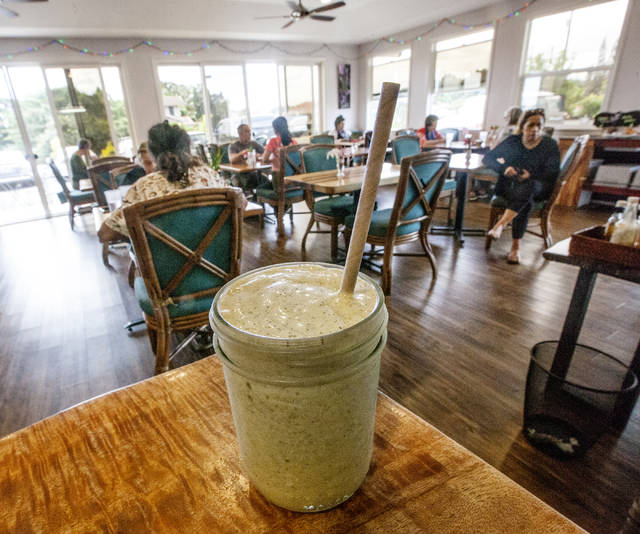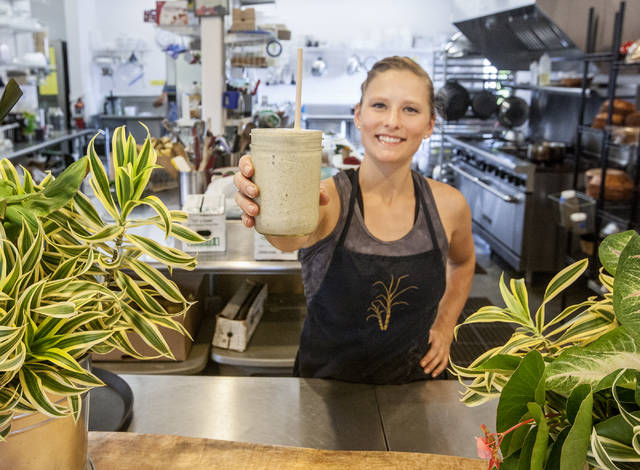Several bills introduced in the state Legislature this month might be the last straw for Hawaii.
Six bills so far have been introduced that would, if passed, prohibit or otherwise limit the use and distribution of plastic straws. The bills are aimed at reducing plastic waste and marine debris, citing reports that Americans use hundreds of millions of plastic straws per day that often enter the oceans and endanger sea life.
While most of the bills call for a blanket ban on the use of plastic straws — two propose penalties of up to $5,000 for each offense, while another two propose fines of between $100 and $500 and would require violators to pick up litter as community service — House Bill 762 and Senate Bill 1290 would not prohibit the use of plastic straws outright, but would require full-service restaurants to only provide plastic straws on customer request.
The issue of plastic straw consumption has proven controversial in the past, as demonstrated last year when another Senate bill aiming to ban the straws failed to make headway. Among the testimony in opposition to that bill was the Hawaii Restaurant Association, which argued that alternatives to plastic straws will not be cost effective for businesses and urged the state to pursue more reasonable methods of reducing waste.
However, this year the association is in full support of House Bill 762, said Victor Lim, the association’s legislative chairman.
“A lot of restaurants are already taking these kinds of measures,” Lim said.
Lim said the problem with proposing an outright ban is that the alternatives to plastic straws are not feasible. Some consumers have complained about paper straws for being flimsy or for leaving an aftertaste, while other alternatives such as bamboo or metal straws would be too expensive.
“We all want to do right by our environment,” Lim said, but added that the industry “needs more time to get there.”
Although Lim said he hopes to see viable alternatives to plastic in the near future, he said HB 762 will similarly reduce plastic consumption in the interim.
“If a bill like this is going to pass, it needs to be a common-sense one like this,” said Lauren Zirbel, executive director for the Hawaii Food Industry Association, which is similarly in support of HB 762 after opposing plastic straw bans in the past.
The bill only applies to full-service restaurants, however. Fast-food restaurants and other venues such as food trucks would not be affected.
Lim said many large fast-food chains such as McDonald’s and Starbucks made their own commitments to sustainable packaging. Last year, McDonald’s set a goal to have all packaging in all restaurants be recyclable by 2025, said Lim, himself a McDonald’s franchisee.
State Sen. Russell Ruderman, D-Puna, who co-introduced Senate Bill 131, which proposes an outright plastic straw ban, said businesses seem to be trending away from disposable plastic items in general.
“The plastic bags were the start,” Ruderman said. “Next is Styrofoam, and we’re dealing with that. Straws seemed like they were next.”
Many restaurants on the Big Island already abandoned plastic straws in favor of compostable straws.
“We’ve only ever used compostable straws,” said Sarah Chard, owner of Hilo juice bar Loved By the Sun. “I just didn’t want to use plastic,” she added, although she acknowledged the compostable straws are more expensive.
Ruderman said Monterey, Calif., banned all plastic straws and utensils for food service last year in an effort to protect its coasts, adding “I think we have at least as good a reason to protect our oceans as Monterey.”
While Ruderman is not involved with HB 762 or its sibling bill in the Senate, he said he supports any bill that leads to a reduction in plastic waste.
“I just think we should stop using plastic for five seconds,” Ruderman said.
Email Michael Brestovansky at mbrestovansky@hawaiitribune-herald.com.





